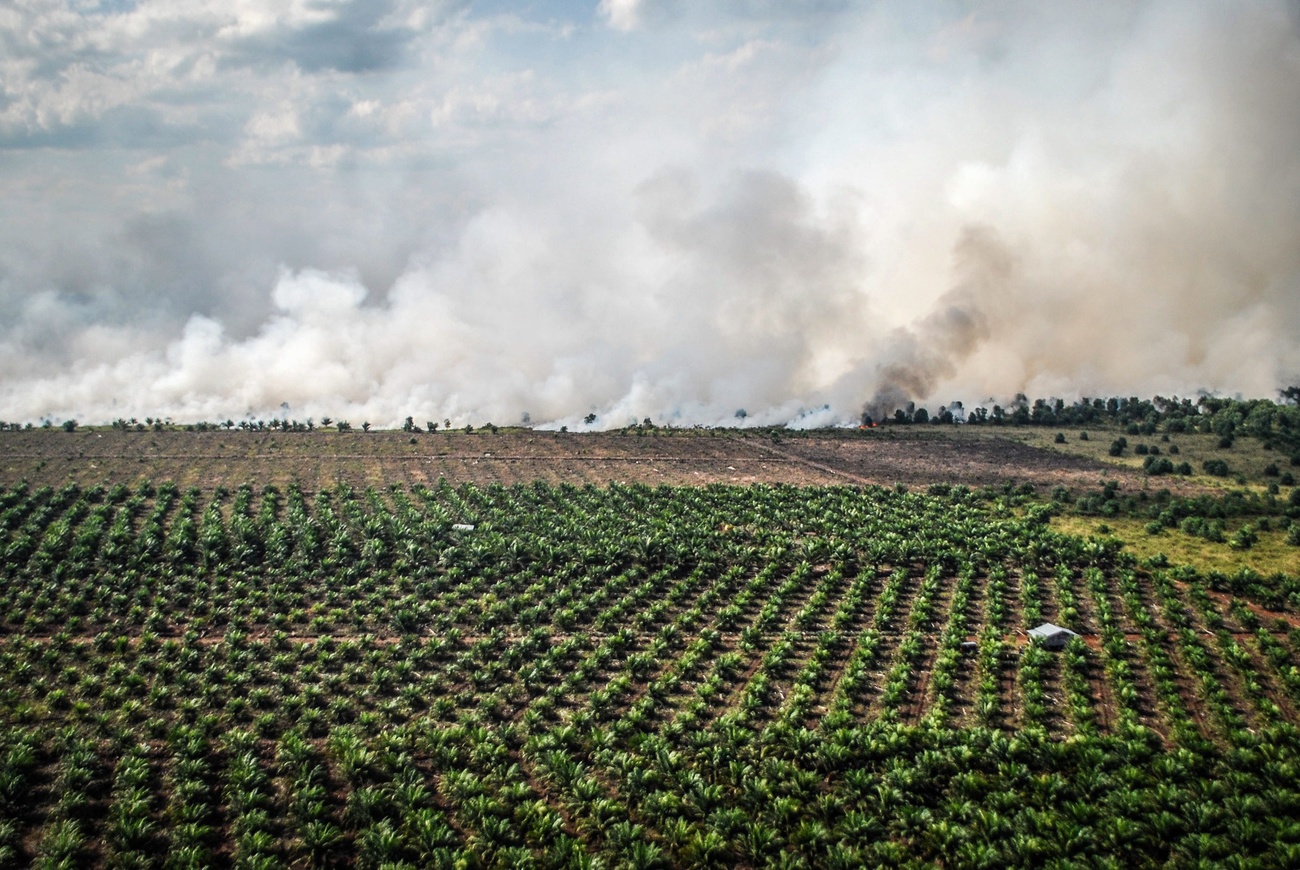
Indonesia’s palm oil angers Swiss anti-globalisation activists

A free trade agreement between Switzerland and Indonesia has been challenged to a nationwide vote. The controversy focuses on the production and imports of palm oil.
The latest ballot is scheduled for March 7 alongside two other issues.
This is only the second time in 50 years that Swiss voters are having the final say on a free trade agreement. Switzerland is among the first countries in Europe to seek preferential trade relations with the leading economy in south-east Asia.
A free trade accord between Switzerland and Indonesia is aimed at a drastic reduction in tariffs for the Swiss export industry. It is expected to lead to savings of CHF25 million ($28 million) for Swiss companies.
In return, Indonesia will benefit from duty-free market access for industrial products to the Swiss market and is granted concessions on certain agricultural goods — notably palm oil. Indonesia is the world’s top producer of palm oil.
The agreement includes a series of sustainability standards and requirements to protect the environment and human rights.
Opponents have raised fundamental criticism of globalisation, excessive trade, pollution, consumerism as well as exploitation and human rights violations against the indigenous population in Indonesia.
Concerns about the destruction of the rain forest in south-east Asia were also raised.
Some farmers also fear increasing imports of palm oil could threaten the production of sunflower and rapeseed in Switzerland.
Those in favour argue the trade deal offers potential benefits for Swiss companies in Indonesia – which ranks among the world’s top 16 economies and has been a focus for Swiss cooperation and development.
Supporters also stress the need for legal standards to ensure that Switzerland can keep its competitive advantage over competitors, notably the European Union.
The accord includes safeguards to ensure that environmental and social standards are respected, according to the supporters of the free trade accord.
Switzerland imported about 32,000 tonnes of palm oil annually from a range of different countries between 2012 to 2019.
The economics ministry says demand in Switzerland for palm oil is falling. For their part, opponents argue the deal could stimulate excessive exports.
An alliance of left-wing groups, led by a Geneva winegrower, Willy Cretegny, collected more than 61,000 signatures for a referendum on the trade deal. The deal was approved by parliament in December 2019, but its implementation has been delayed by the opposition.
Under Switzerland’s system of direct democracy, parliamentary decisions can be challenged to a nationwide vote if at least 50,000 signatures are collected within 100 days following parliament’s approval.
The opposition against the accord with Indonesia is made up of globalisation critics, left-wing political groups and non-governmental organisations. They include the Green Party, the Social Democrats (following a U-turn by party delegates), as well as several smaller farmers’ and environmental associations.
The other main political parties, the Swiss business community and the government recommend approval of the accord, as does the main farmers’ federation.
Nationwide votes on international trade deals are rare. The last such ballot dates back to 1972 when voters approved a free trade accord with European Union (then known as European Community).
Last year, a proposal by a broad alliance of mainly left-wing parties and civil society to impose due diligence rules on Swiss companies active abroad was narrowly rejected at the ballot box.
A proposal by the Green Party aimed at promoting sustainable food production and imports won just under 39% of the vote in a nationwide ballot in 2018.

In compliance with the JTI standards
More: SWI swissinfo.ch certified by the Journalism Trust Initiative






























You can find an overview of ongoing debates with our journalists here . Please join us!
If you want to start a conversation about a topic raised in this article or want to report factual errors, email us at english@swissinfo.ch.